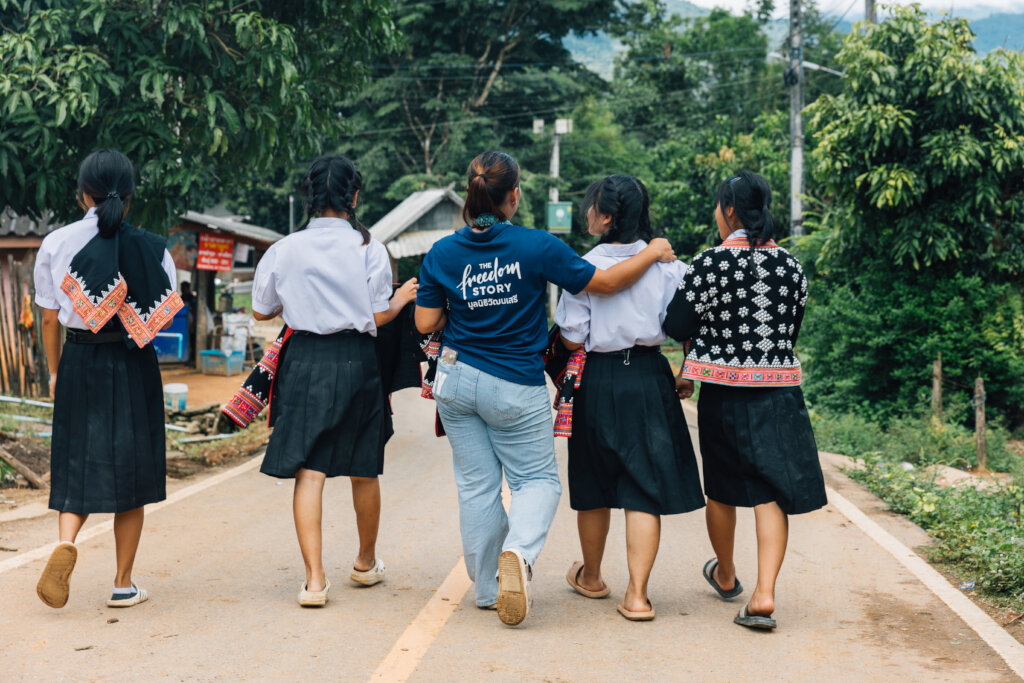By Jade Keller | Research Writer & Executive Editor
Imagine being born and raised in a country that your family has lived in for generations, and yet you are unable to become a citizen of that country. Imagine your whole family has lived in the same place for as long as anyone can remember but still does not officially belong. Your family has never even originally migrated from another country – they have always been here, yet they have never been recognized as citizens. You’re not an undocumented migrant from another country. There is no other country to “return to.” You simply don’t belong to any country. You are stateless.
“Stateless” is a term for people who don’t have citizenship in any country. Since most of us get citizenship automatically when we’re born—from the country in which we’re born—this isn’t an issue most people ever have to confront. We also generally take for granted the rights and protections that citizenship offers: the ability to attend school and get a legally recognized degree, the ability to get a driver’s license or bank account, the right to travel or move, and more. Without legal recognition of one’s identity, accessing things like education, healthcare, and a job is very hard. People in this situation often have little choice but to live on the margins of society, eking out a living unregistered and working in jobs with little protection from exploitation. This leaves people of working age vulnerable to labor exploitation. When families cannot earn enough to live on, children become vulnerable to sex trafficking as a means of survival.
You might think of statelessness as only happening to refugees or people who are politically exiled from their home country. But there are other ways it can happen, too.
Here’s how statelessness happened in the communities where we work.
In the region where we’re based, there are entire communities of stateless people. Statelessness in these communities rose out of a situation where some ethnic minorities (many of whom belonged to nomadic or semi-nomadic tribes) were historically never recognized as citizens as the country’s borders shifted back and forth over them. Though the borders have been settled for a long time, the laws have been reformed to address such gaps, and Thailand has pledged to end statelessness by 2024, it’s still a challenging process to ensure everyone is appropriately documented. Many stateless people have inherited a generational issue where they lack proper documentation to apply for citizenship. Living on the margins of society and lacking access to education, they are often unaware of the rights to which they are entitled, or the application process had previously felt so challenging they had given up trying.
In recent years, the government has worked to make the process easier, for example, by launching an e-registration process to ensure all newborns born in Thailand, regardless of parents’ nationalities, are registered and receive birth certificates. Nevertheless, it will still take time to reach everyone and help them navigate the pathways to accessing the rights to which they’re entitled.
Here’s how we help stateless children:
Statelessness is a very extreme case for those who are most vulnerable to traffickers—namely, people who become desperate to meet their deepest needs. Children desperate for affection become vulnerable to online predators who pretend to offer that. Families desperate to survive become vulnerable to anyone offering a way to survive, no matter how exploitative it is. Legal documentation of one’s existence is one of the most basic forms of protection one can have. We’re working to help ensure every child is counted because every child matters.
Thank you for your support of these children and their families. Together, we are breaking the cycle of trafficking at the source.
In Hope,
The Freedom Story
Links:
Project reports on GlobalGiving are posted directly to globalgiving.org by Project Leaders as they are completed, generally every 3-4 months. To protect the integrity of these documents, GlobalGiving does not alter them; therefore you may find some language or formatting issues.
If you donate to this project or have donated to this project, you can receive an email when this project posts a report. You can also subscribe for reports without donating.
Support this important cause by creating a personalized fundraising page.
Start a Fundraiser